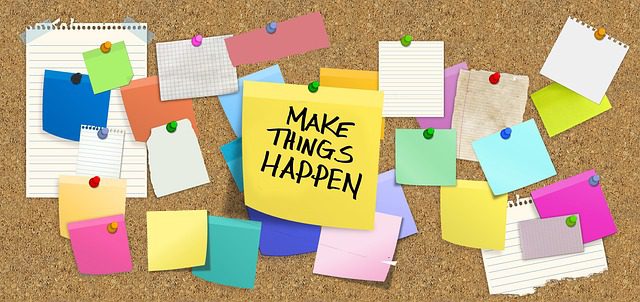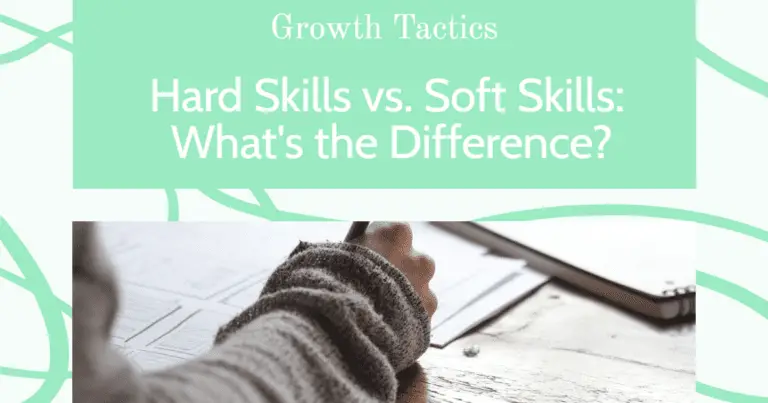In the world of work, it’s a common assumption that hard skills are more beneficial than soft skills. But what exactly are soft and hard skills?
And what is the difference between them?
Let’s take a look at some key differences and explore how to use both sets of skills to get ahead in your job search and career.
Jump To Section
What are hard skills?
Hard, also known as technical skills are tangible and measurable skills that you can learn, measure and teach others. They are the things that make you good at your job, but they don’t always define how people perceive your value as a professional.
Hard skills are also more easily transferable. If you need to move to a new job or career, the technical knowledge you have gained from your hard skills will be easier for potential employers to value and recognize.
For example, if you’re applying for a job that requires Microsoft Excel expertise, your ability to use formulas, charts and graphs will make an immediate difference in determining whether you get hired or not.
Examples of hard skills
- Computer Programing
- Mechanic
- Welding
- Data Entry
- Doctor
- Real Estate Agent
- Website Design
What Are Soft Skills?
Soft skills are abilities that aren’t directly related to any specific job. They’re about how you work with others, your personality, and how you interact with them. Soft skills include things like communication, teamwork, leadership, and other interpersonal skills.
Soft skills are vital for success in the workplace because they are what make you a good employee. They’re the things that will help you get along with coworkers, supervisors, and clients.
Soft skills are also important because they apply to almost every job out there. Even if you’re not in sales, having strong communication and people skills will help you build relationships with your customers and keep them happy so they’ll buy more from you.
These skills aren’t taught as frequently in formal education but still can be learned and built upon.
Examples of soft skills
- Communication skills
- Emotional Intelligence
- Teamwork
- Problem-solving
- Flexibility
- Time management
- Organization
- Self-motivation and initiative
What’s the Difference Between Soft Skills and Hard Skills?
Soft skills are more about your personality, how you work with others, and your ability to communicate. Hard skills are more about the knowledge and expertise that you have.
Soft skills tend to be harder to measure than hard ones but don’t let that stop you from trying! The best way to determine whether or not you have a soft skill is to ask yourself how you would rate yourself on a scale of 1-10.
If you scored yourself low you can work on ways to build that soft skill. That brings us to our next point on how to build or learn new skills.
How do you acquire new hard and soft skills?

Hard skills are learned through direct instruction. Some examples of how to acquire these types of skills include:
- Going to college
- on-the-job training
- Technical schools
Soft skills, on the other hand, can be taught but can also be learned on the job and through life experiences. The following are some great ways to build soft skills:
- Reading a book
- Attending a seminar or webinar
- Using a life coach
That’s not to say you should rely entirely on your work environment to learn how to do these things—but it’s worth keeping in mind that when it comes down to hard versus soft, some things take time and experience.
This is especially true if you’re looking to learn a hard skill in high demand. For example, if you want to become an expert programmer and there are hundreds of open positions at your company, it might be worth investing in some formal training. On the other hand, if you want to learn how to manage your time better, you can probably read some books on the subject or better yet, take some online courses.
What hard skills are in demand?
Hard skills are always in demand depending on the job you are seeking. With the world becoming more and more digitized, skills like information technology and website design are in huge demand.
If you are looking for a job in an office, hard skills like Microsoft Office or administrative assistant positions may be appropriate. The key is to find out what kind of hard skills are needed in your industry and then invest your time and money on becoming proficient at those skills.
You can also use your hard skills to build a side business. For example, if you are good at writing, you can create content for other companies. If you are an accountant, you might be able to help people with their taxes or bookkeeping.
What soft skills are in demand?
Soft skills are also in high demand in the workplace, as they can often be applied to a wide variety of situations.
Soft skill requirements vary by field. For instance, if you’re applying for a job in business or sales, your soft skill set will probably need to focus on leadership qualities such as adaptability, flexibility, critical thinking, or problem-solving ability.
If you’re going into health care or education fields (like nursing or teaching), you’ll probably want a strong foundation for working collaboratively with others. Whether it’s within your team at work or with patients/students outside of office hours. Along with some training in interpersonal interactions (e.g., how to handle conflict resolution).
In short, soft skills are important because they help you interact with others effectively. They’re not only crucial for communicating clearly and professionally, but also for building healthy relationships. This is why employers look for them in job applicants and why it’s important to develop them before applying for a position.
How to Show Soft and Hard Skills to Potential Employers

Hard skills are easier to measure than soft ones, which makes them more appealing to employers. The reason is that hard skills are often learned in school, and through work experience. While soft skills tend to be learned on the job and through life experiences. For example, if you’re applying for a position as an accountant and have majored in accounting in college, then your degree will show that you have the knowledge necessary for the job.
It’s just a matter of how well you can apply it! In contrast, if someone has gotten their degree in business management but has no real-world experience managing employees or projects (soft skills), then it might be difficult for them to demonstrate these abilities without having ever done so before.
You can show your hard skills with things like degrees but when it comes to soft skills there isn’t much tangible to show them. This is why it’s important to show them using examples. For instance, if you want to show leadership skills, you may put something on your resume like “led 30-person shop to highest production in company history.
With soft skills, you have to paint the picture especially when it comes to putting skills on your resume. For example, if you want to show that you are a good communicator, you may put something on your resume like “created and implemented new communication system that increased employee satisfaction by 30%.” This shows that you can communicate effectively with others and get results.
The same goes for other soft skills. For instance, if you want to show that you are a good problem solver, you may put something on your resume like “created and implemented new process that reduced customer complaints by 20%.” This shows that you have the ability to solve problems and get results.
Conclusion
So, what does all of this mean? It means that you have to be able to display your hard and soft skills in order to get the job. These are two very different things, but they both play an important part when it comes time for hiring managers to decide who gets hired and who doesn’t. The best applicants have a mix of hard and soft skills.
Did you find this article on hard skills vs soft skills useful? Show me by sharing or subscribing below.


